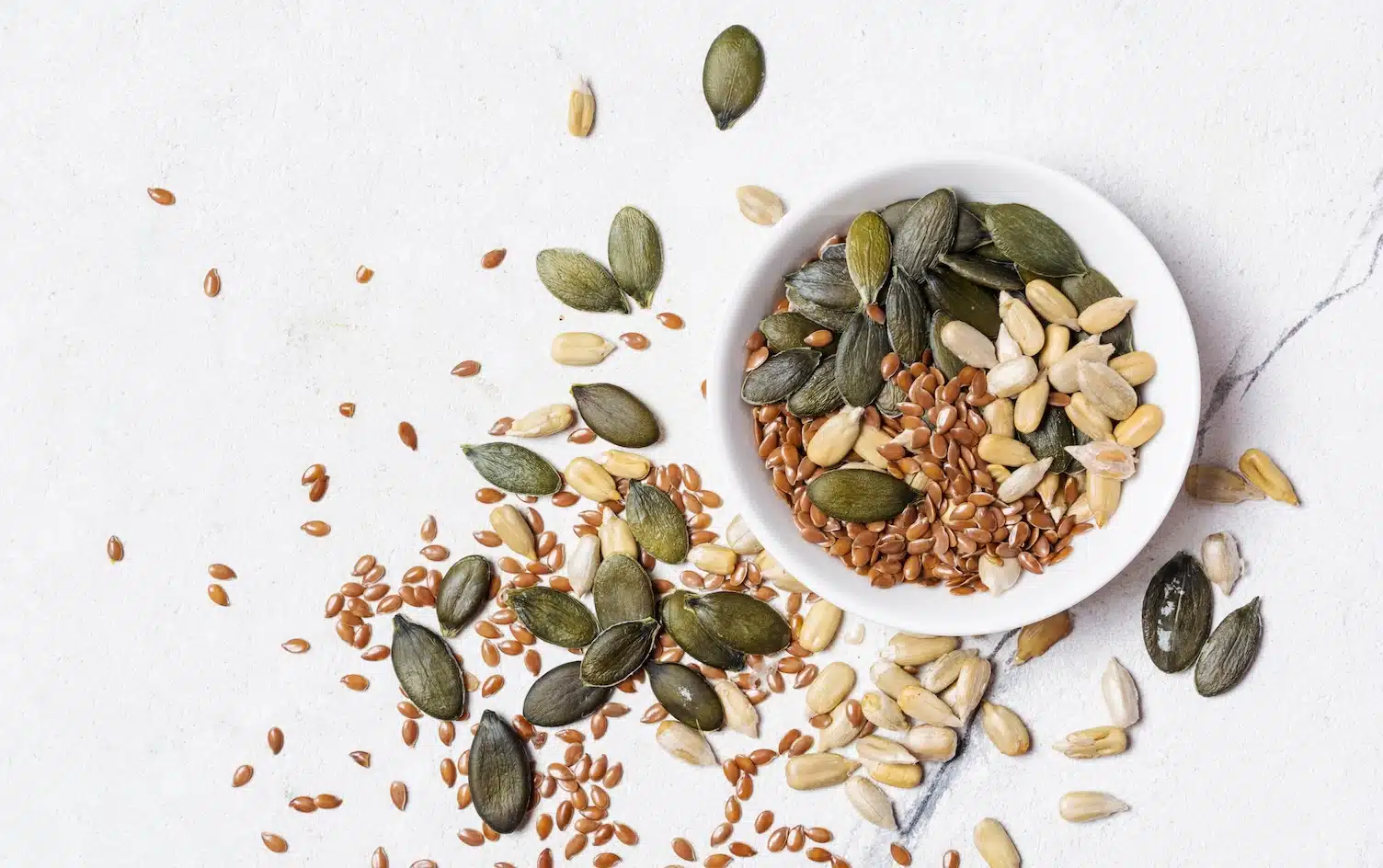The holidays are here. Health-conscious people around the world are gearing up for two months of parties, feasts and celebrations. It can be overwhelming. But you can use this 97-step strategy to keep the weight off during the holidays.
While my #1 philosophy is that life should be great and you shouldn’t limit the things you enjoy, it can be helpful to go into the holidays with a plan to get your healthy style more or less on track.
These are the steps I personally take to make sure I don’t start the new year trying to make up for the holidays.
1.Don’t panic.
First and foremost, keep a mindset of growth and learning. This means remembering that your food choices don’t equal your worth as a person, and staying positive even when things don’t go exactly as you planned.
The holidays can be challenging for everyone on the dietary front, and self-compassion goes a long way toward getting you out on the other side healthy and happy.
Don’t let one or two frustrating events derail the entire season.

2.Plan Your Attack
Now that you’ve chosen what’s worth splurging on, you’ve also decided what’s not worth splurging on. For me, it’s work-related events and meals shared with my family (I love them, but they’re not the best cooks).
When these are events that I can’t gracefully opt out of, it’s important that I know what my plans are before I enter.
Always remember that the food is not the reason you are attending, but try to focus on the people and the event. That being said, there are a few key factors to keep in mind when planning food:
For shorter cocktail hour type gatherings, my first priority is to make sure I eat beforehand or make specific dinner plans afterward. That way, a drink or two won’t convince me that substandard food is my only option.
For longer events and dinners where I can’t escape food, I optimize my food choices to stay healthy and accept the fact that it won’t be the most rewarding meal of my life.
In these situations, my top priority is to eat vegetables. I try to fill up on as many as I can, so at least the evening won’t be a net loss in terms of health. My second priority is to eat some sort of protein or meat, so I’m satisfied enough to avoid the bland dessert that inevitably comes later.
Finally, at events like this, I stick to low-alcohol beverages (e.g., white wine, light beer) and avoid cocktails altogether, which are often as sweet as soda. To me, cocktails are a splurge, and I’ve decided that this event isn’t worth it.
3.Anticipating obstacles
Executing a plan is easier said than done. For example, buffets can be especially challenging for many people because there are no clear boundaries to stop you from overeating.
If holiday events are difficult for you, you’re likely to fall victim to the same pitfalls again and again.
Do you skimp too much at dinner and then lose it at the dessert table?
Do you eat a dozen appetizers before the real meal begins?
Try to anticipate these obstacles and develop alternative courses of action.
In the buffet example, the number of choices often overwhelms our better judgment. Avoid this by committing to only one (satisfying) plate of food beforehand.
When it’s time to serve yourself, check the entire list of options before making a decision, and then choose the most flavorful and, if possible, healthy food you can find. Once you’ve made your choices, eat them slowly and mindfully.
Having your alternative plan in place before the activity begins will prevent you from having to make decisions on the spur of the moment and reduce your reliance on willpower.
- Choose your battles
In the spirit of cultivating a growth mindset, be realistic about what you can and can’t fix. While “I’m not going to eat cookies throughout the holidays” is unrealistic for most of us, “I’m not going to eat any cookies at the office” is totally doable.
I recommend taking a good look at your calendar and evaluating which events are worth splurging on. You can use any criteria you want, from the quality of the food to its emotional value.
The important thing is that it’s worth it to you.
Two special occasions per month is a reasonable goal. You can dial it up or down slightly depending on your goals and how important the holiday is to you, but if you celebrate multiple times a week, this could be problematic.
Once you’ve chosen your truly special occasions, stop worrying about them. Expect to enjoy them guilt-free.
We’ll use the following steps to make sure the damage is minimized.
- Be realistic
When planning your attacks and anticipating obstacles, it’s absolutely essential that you remain realistic about the situation and your abilities, otherwise your plan is sure to fail.
I don’t know anyone who can drink for hours and eat nothing but raw carrots and celery, so don’t make that your goal. Be smart about your strategy, be honest about your limitations, and make sure your plan works in reality, not just in theory.
If you feel like you’re second-guessing what your options are, try to learn more about the event itself and what will happen.
If you’re not confident in your ability to execute the best plan you can think of, consider recruiting a friend for more ideas and moral support.
- Tighten up the home front
Eliminating unintentional and totally undeserved splurges is an important part of winning the holiday game. But even then, there’s a lot of extra sugar to contend with.
That’s why it’s more important than ever to rely on your home game habits to keep you on track during the holidays.
Remember, you’ve already decided that your HCH is what makes your life awesome (right?). If you have enough impactful habits, you should usually be able to get rid of the “most of the time, most of the time” habit and keep your weight and health in check.
During the holidays, make sure to keep as much HCH as possible and do all HCH “most of the time”.
This is the best thing you can do to use your willpower during the holidays.
- Celebrate your victories
Healthy living is not a single challenge, but many small challenges that add up to a huge advantage.
Keep this in mind during the holidays and don’t forget to celebrate the small victories. This is important for several reasons:
First and foremost, it is important to associate positive emotions with healthy behaviors in order to develop the final habit. Simply flexing your facial muscles into a smiling position can convince your brain that good things are happening. So, having a smile on your face as you pass by the dessert table can make the next time easier.
Secondly, focusing on each victory as you experience them will give you a sense of progress and make your small gestures more mentally meaningful.
Feeling successful is far more motivating than “I wish I was thinner” or “I wish I had more willpower” and can help you keep going.



